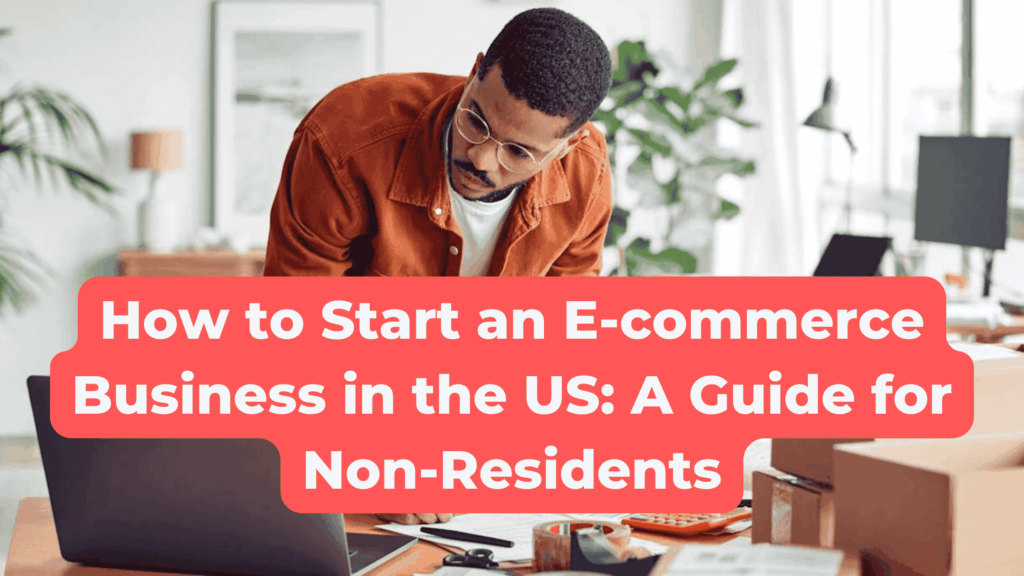The Importance of EIN for E-commerce Ventures
An Employer Identification Number (EIN) is crucial for e-commerce ventures as it serves as a firm’s federal tax identification number. It is needed for various business operations including opening a business bank account, filing tax returns, and hiring employees. Additionally, having an EIN helps separate personal and business finances, thereby simplifying accounting. For e-commerce entrepreneurs, this distinction is vital in managing international transactions and tax responsibilities. An EIN also streamlines compliance with federal regulations, fostering growth and operational efficiency. Learn EIN and ITIN for E-commerce Businesses.
Obtaining an ITIN: Key Steps for E-commerce Businesses
An Individual Taxpayer Identification Number (ITIN) is essential for individuals ineligible for a Social Security Number but who need to report taxes in the U.S. E-commerce owners can obtain an ITIN by filling out IRS Form W-7 and providing a federal income tax return alongside other supporting identification documentation. It’s crucial for non-U.S. residents engaging in U.S. business activities to obtain an ITIN to ensure proper tax reporting. The application process can be completed through the IRS directly or via an Acceptance Agent, facilitating smoother business operations.
Differences Between EIN and ITIN Explained
While both EIN and ITIN are used for tax purposes, they serve different needs and individuals. An EIN is primarily for businesses to conduct financial activities, establish business entities, and manage employment-related tax obligations. On the other hand, an ITIN is for individuals who do not have a Social Security Number but need to file federal tax returns. E-commerce businesses often require an EIN for operational purposes, while owners might need an ITIN to comply with federal tax regulations. Both numbers play distinct yet complementary roles in the U.S. tax system.
How EIN and ITIN Facilitate Business Operations in the US
EINs and ITINs streamline various administrative and tax processes for non-resident entrepreneurs and facilitate their operations in the U.S. An EIN is instrumental in establishing credit for the business, allowing it to open corporate bank accounts and apply for lending or credit. Meanwhile, an ITIN helps individuals adhere to tax obligations without a Social Security Number, enabling them to receive tax benefits and refunds. Together, these identifiers ensure businesses and owners can operate comprehensively within the U.S. financial ecosystem.
Enhancing Your E-commerce Strategy with EIN and ITIN
For any e-commerce venture aspiring to grow and maintain a competitive edge in the U.S. market, having a solid grasp of the financial and legal frameworks is essential. An Employer Identification Number (EIN) and an Individual Taxpayer Identification Number (ITIN) serve as foundational tools that help navigate these frameworks effectively. An EIN is not only pivotal for tax purposes but also plays a significant role in establishing credibility with suppliers and customers. It can be seen as a mark of legitimacy, signaling to stakeholders that your business is organized and trustworthy. Furthermore, this number aids in maintaining clear financial records, an often overlooked but crucial aspect that can influence consumer trust and business partnerships.
Exploring the Impact of Compliance on Business Growth
Beyond tax compliance, possessing an EIN and ITIN underscores your commitment to adhering to the regulatory landscape, which is pivotal for fostering long-term business growth. Compliance not only reduces the risk of potential legal issues but also enhances reputation and customer confidence. In the digital age, where consumer awareness and expectations are at an all-time high, showcasing your business’s compliance with U.S. regulations can be a unique selling point. It illustrates a level of professionalism and dedication that can distinguish your venture in a crowded marketplace.
FAQs About EIN and ITIN for E-commerce Owners
What is the primary difference between an EIN and an ITIN?
An EIN is primarily used by businesses for tax and financial purposes, while an ITIN is for individuals who are not eligible for a Social Security Number but need to file U.S. federal tax returns.
Do I need both an EIN and an ITIN for my e-commerce business?
It depends on your residency status and business structure. Typically, businesses require an EIN, whereas non-U.S. resident owners might need an ITIN to comply with tax regulations.
How long does it take to obtain an EIN or ITIN?
Obtaining an EIN can take a few minutes to a few weeks, depending on the application method. An ITIN application may take several weeks, especially if additional documentation is required.
Can I expedite the process of obtaining an EIN or ITIN?
While there is no official expedited process for an ITIN, applying for an EIN online can be faster than other methods. Ensure all documentation is complete to avoid delays.
What documentation is required to apply for an EIN or ITIN?
For an EIN, you typically need details about your business structure. For an ITIN, you need to file IRS Form W-7, a federal income tax return, and provide identification documents.
How do EIN and ITIN affect my business operations in the U.S.?
An EIN helps in opening business bank accounts, filing taxes, and hiring employees, while an ITIN allows individuals to meet tax obligations without a Social Security Number, ensuring compliance and operational efficiency.
Conclusion
To successfully manage an e-commerce business in the U.S., understanding the roles of EIN and ITIN is crucial. These identifiers not only facilitate tax compliance but also enable efficient financial management and business operations. By leveraging EINs and ITINs, e-commerce entrepreneurs can ensure seamless handling of both legal and administrative tasks. For more insights into how these numbers can support your e-commerce venture, visit Clemta.







